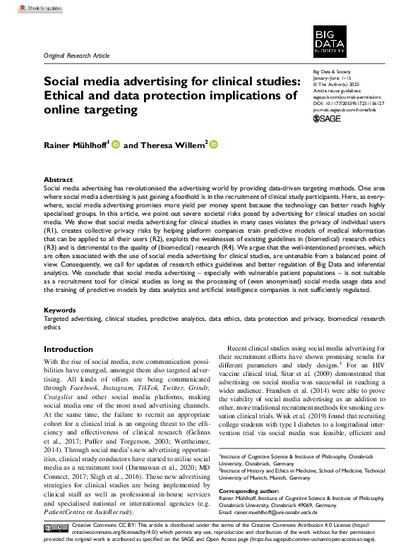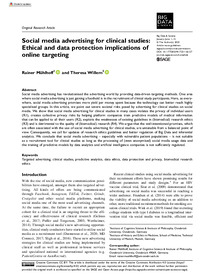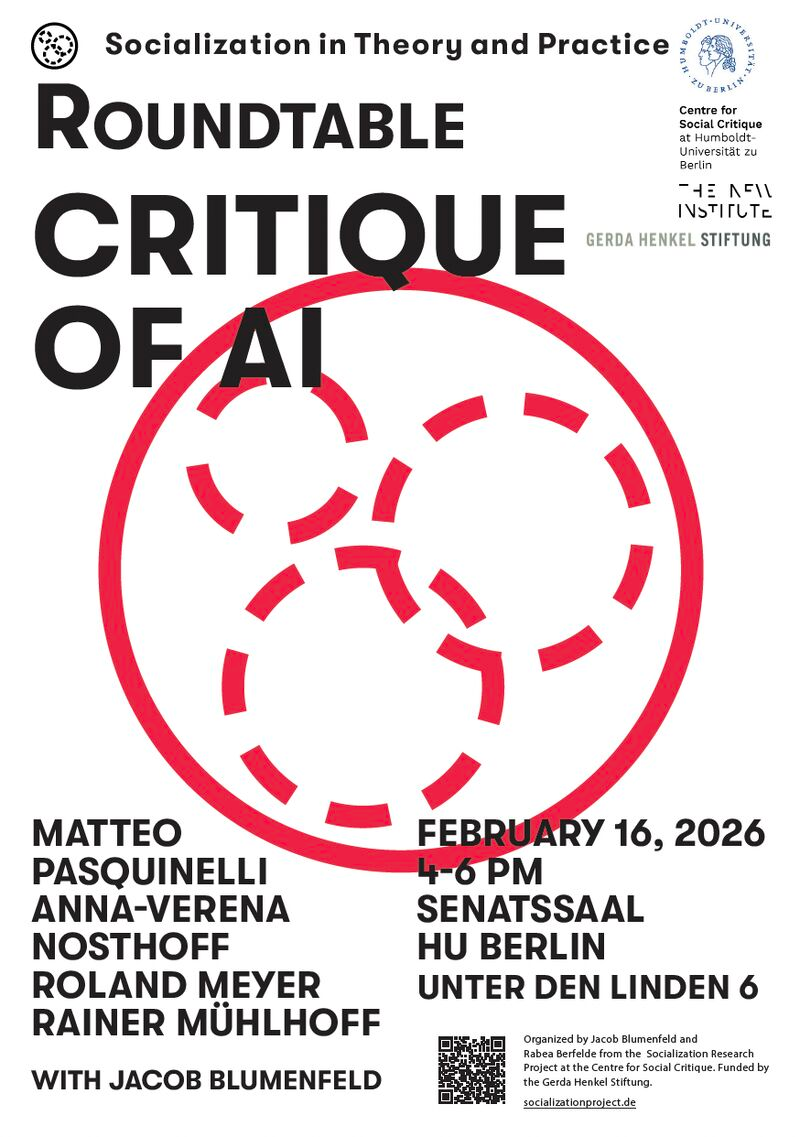Now out: “Social Media Advertising for Clinical Studies: Ethical and Data Protection Implications of Online Targeting” (with Theresa Willem)
In this article, we discuss the data ethics and privacy implications of online advertising on social media. Using the example of online advertising for clinical trials (research on new drugs or therapies), our study shows that personalized advertising allows platforms such as Google or Facebook to train predictive models for the diseases in question. These can be applied to any people, including users who have never seen the ads themselves, to predict whether they suffer from the disease in question.
Abstract: Social media advertising has revolutionised the advertising world by providing data-driven targeting methods. One area where social media advertising is just gaining a foothold is in the recruitment of clinical study participants. Here, as everywhere, social media advertising promises more yield per money spent because the technology can better reach highly specialised groups. In this article, we point out severe societal risks posed by advertising for clinical studies on social media. We show that social media advertising for clinical studies in many cases violates the privacy of individual users (R1), creates collective privacy risks by helping platform companies train predictive models of medical information that can be applied to all their users (R2), exploits the weaknesses of existing guidelines in (biomedical) research ethics (R3) and is detrimental to the quality of (biomedical) research (R4). We argue that the well-intentioned promises, which are often associated with the use of social media advertising for clinical studies, are untenable from a balanced point of view. Consequently, we call for updates of research ethics guidelines and better regulation of Big Data and inferential analytics. We conclude that social media advertising – especially with vulnerable patient populations – is not suitable as a recruitment tool for clinical studies as long as the processing of (even anonymised) social media usage data and the training of predictive models by data analytics and artificial intelligence companies is not sufficiently regulated.
Download options and bibliographic data
-
Mühlhoff, Rainer, und Theresa Willem. 2023. „Social Media Advertising for Clinical Studies: Ethical and Data Protection Implications of Online Targeting“. Big Data & Society, 1–15. doi:10.1177/20539517231156127.×
@article{Mü-Willem2022, author = {Mühlhoff, Rainer and Willem, Theresa}, title = {Social Media Advertising for Clinical Studies: Ethical and Data Protection Implications of Online Targeting}, journal = {Big Data & Society}, page = {1–15}, year = {2023}, doi = {10.1177/20539517231156127}, web_group = {papers}, web_thumbnail = {/assets/images/publications/Mü-Willem2022.jpg}, web_fulltext = {/media/publications/mühlhoff_willem_2023_social_media_advertising_for_clinical_studies.pdf} }






